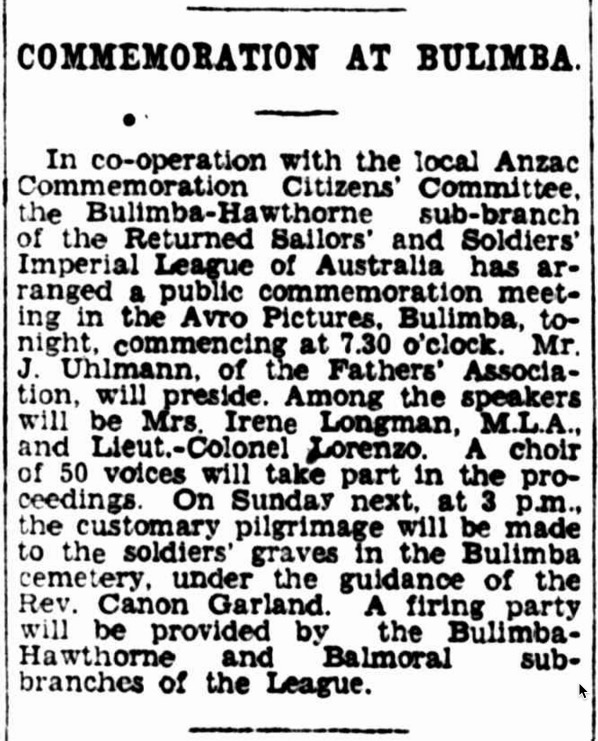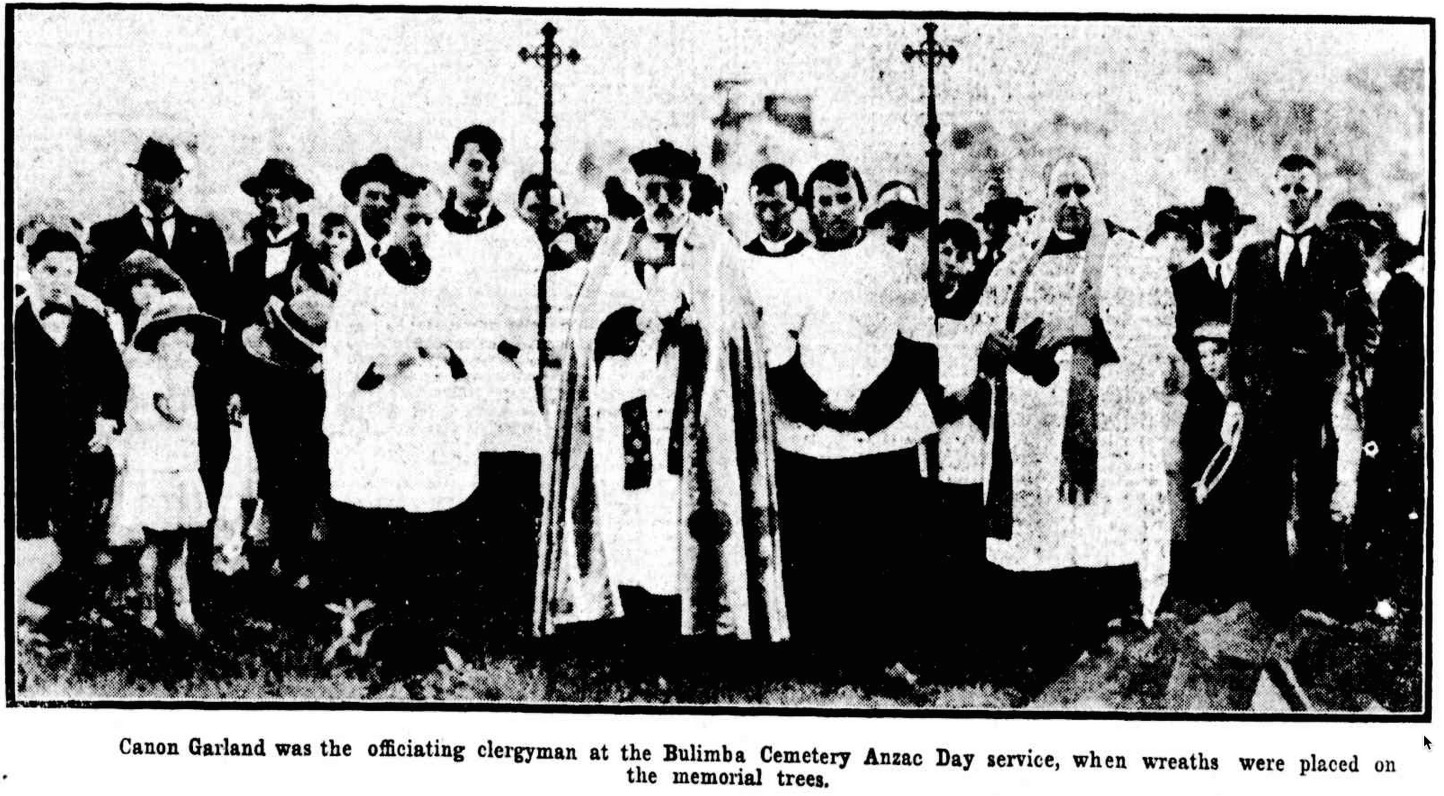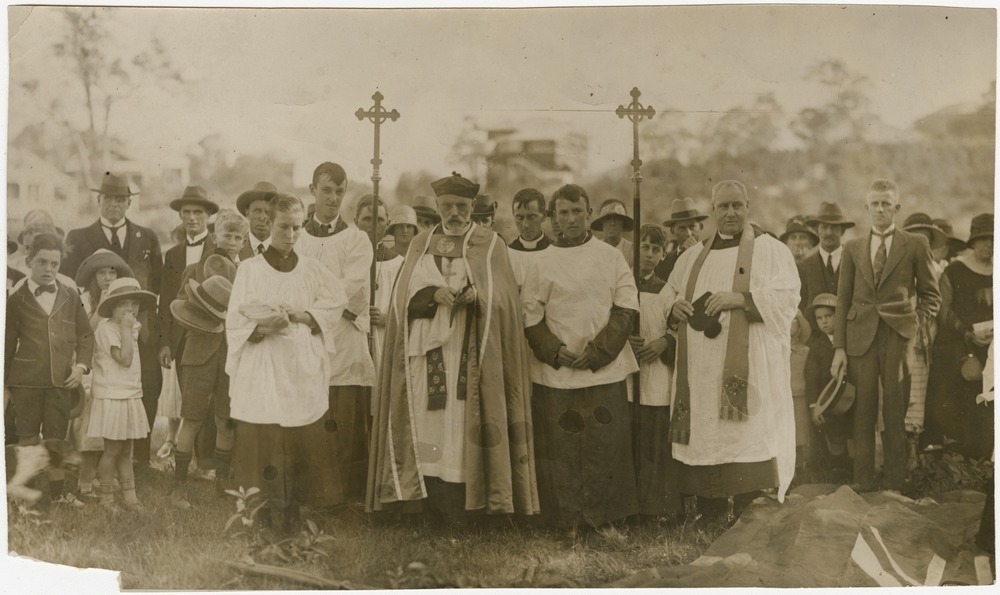Bulimba's Anzac Day


HONOURED DEAD.
PILGRIMAGE TO CEMETERY.
HAWTHORNE ANGLICAN SERVICE.
“Just as a child is born into this world with the instinct of hunger for food, and it is fed, and as it is born into the world with eyes to see, and is shown light, so we exercise an instinct in coming to these cemeteries to remember our departed before God.”
In these words the Rev. Canon D.J. Garland [ David John Garland ] addressed a large gathering assembled in the Memorial Avenue, Bulimba Cemetery, yesterday afternoon [ Sunday, 27 April 1930 ].
The occasion was an Anzac pilgrimage, arranged by the Rev. A.T. Craswell (rector of the Balmoral Anglican Church) [ Allen Thurlow Craswell ], with the assistance of the rector’s warden, Mr. C.B. Hedges (late Sergeant of the 9th Battalion) [ Charles Beaconsfield Hedges ].
A procession from the cemetery gates over the cemetery hill to the Memorial Avenue was headed by the Woolloongabba Salvation Army Band, which was followed by a squad of returned soldiers from the surrounding suburbs, carrying reversed arms.
Behind military standards followed the clergy, a detachment of cadets of the Brisbane Institute of Social Service (led by Mr. D.J. M’Dougal) [ David Joseph McDougall ], and the Morningside troop of Boy Scouts, under Scoutmaster Sampson.
The congregation, which stood about a memorial tree, sang a litany, and Canon Garland offered a Prayer for the Dead and led in the recitation of The Apostles’ Creed.
Addressing the gathering, the Rev. Canon Garland said was pleasing to see that the people had not forgotten the benefits bestowed on them by the sacrifice of Jesus for the freedom such as Britishers understood.
In saying the Creed the people expressed their belief.
It was good that when they were gathered together that they should join in an Act of Faith in God and all that the Word and Thought meant.
Man was not merely an animal though he shared with many things in common with animals.
Despite this, man was peculiar in the animal world in grieving for his mate – not merely for a moment or two, as animals did.
Man remembered his mate, prayed for him and remembered him with a prayerful heart as those assembled were doing that afternoon for their dead.
Instinctively man felt for his fellow in his hour of sorrow or bereavement and endeavour and to afford him comfort.
The child born into the world felt the pangs of hunger and instinctively sought his mother’s breast.
The child was born into the world blind but with eyes to see and instinctively he sought the light.
God always provided satisfaction for an instinct and thus it was that the people, in exercise of an instinct, made their way to the cemeteries on the Sabbath as they had done that day and remembered their departed before God.
He prayed that the memory of Anzac Day would live in generation after generation and that the ideals and spirit of Anzac heroism, sacrifice and endurance would live on like the example of Him who came and sacrificed Himself for man.
A firing party of returned soldiers in charge of Mr A.R. Thomson [ Archibald Robert Thomson ] fired a salute and “The Last Post” was sounded.
– from page 13 of “The Brisbane Courier”, 28 April 1930.


